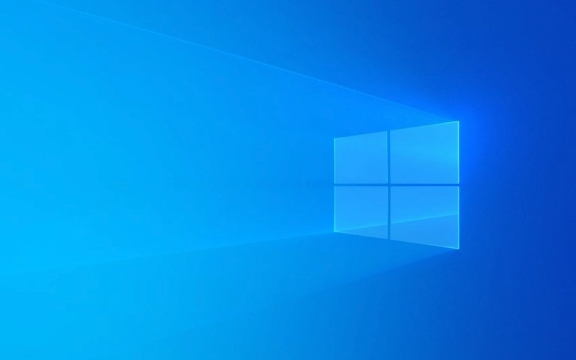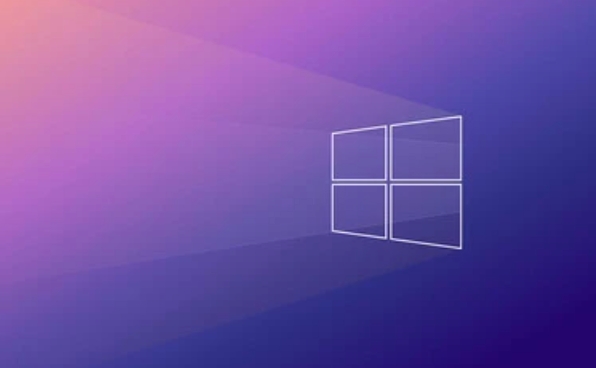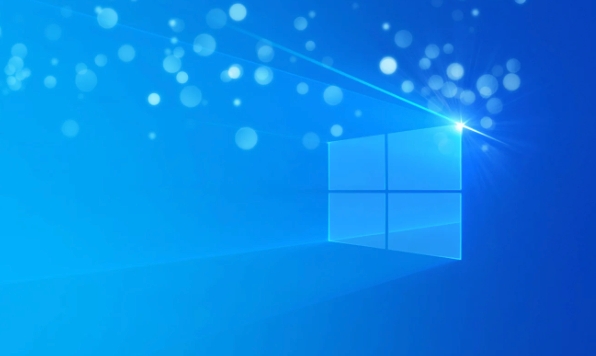Yes, you can run Windows on a Mac using Boot Camp. 1. Confirm your Mac supports Boot Camp—Intel-based models from 2012 onward work, but Apple Silicon Macs require virtualization tools. 2. Ensure macOS supports the Windows version you plan to install—typically Windows 10 or 11. 3. Gather a 16GB USB drive, Windows ISO, and at least 50GB free space, and back up your system before proceeding. 4. Format the USB drive as FAT32 or exFAT, update macOS, and disable FileVault temporarily. 5. Open Boot Camp Assistant, select the ISO and USB drive, allocate at least 100GB for Windows, and let the assistant prepare the partition. 6. During installation, choose the “BOOTCAMP” partition and install drivers from the USB for full hardware support. 7. After installation, fix common issues like missing sound or Wi-Fi by reinstalling Boot Camp drivers manually, adjust trackpad settings via the Boot Camp control panel, hold Option to switch back to macOS, and optimize performance by enabling BIOS virtualization (on Intel Macs) and disabling unnecessary startup programs. Note that some Mac features may have limited support in Windows.

Yes, you can run Windows on a Mac — and the easiest way to do it is with Boot Camp. Apple built this tool right into macOS to help you install and run Windows natively, without relying on virtualization software. It’s not completely plug-and-play, though, so here’s how to get it done smoothly.

Check if Your Mac Supports Boot Camp
Not every Mac can run Windows via Boot Camp. Most Intel-based Macs from around 2012 or newer support it, but Apple Silicon (M1/M2/etc.) Macs do not. If you’re on an M1 or later model, you’ll need to use virtualization tools like Parallels or UTM instead.

Also, check what version of Windows is supported for your macOS version. Apple usually supports the latest two versions of Windows — currently Windows 10 and 11. You can find exact compatibility info in the Boot Camp Assistant itself or by searching Apple’s support site.
Prepare Everything Before Installing
Before diving into installation, gather these items:

- A USB flash drive with at least 16GB of storage (used for transferring drivers)
- A Windows ISO file downloaded from Microsoft’s website
- At least 50GB of free space on your Mac’s drive (more if you plan to use Windows heavily)
- A charged Mac (or keep it plugged in during the process)
You’ll also want to back up your system before proceeding — resizing partitions and installing new OSes always carries some risk.
Once ready:
- Format the USB drive as FAT32 or exFAT using Disk Utility
- Make sure your macOS is updated to the latest version
- Turn off FileVault encryption temporarily (it can cause issues during setup)
Use Boot Camp Assistant to Set Up
Open Boot Camp Assistant, which lives inside the Utilities folder. From there:
- Select the option to “Install Windows 10 or later version”
- Choose the correct Windows ISO and the USB drive you prepared
- Decide how much space to allocate to Windows — don’t go too low; 100GB is a safe minimum unless you know you’ll need more
- Let the assistant split your drive and copy files
After this step, your Mac will restart and boot into the Windows installer automatically.
During installation:
- When asked where to install Windows, pick the partition labeled “BOOTCAMP”
- Don’t skip driver installation — the USB drive has essential drivers that make hardware like Wi-Fi, trackpad, and keyboard work properly
- Wait for all drivers to install before updating Windows
Fix Common Issues After Installation
Some things might not work perfectly out of the box. Here are a few common problems and how to fix them:
- No sound or Wi-Fi after reboot? Reinstall the Boot Camp drivers manually from the USB drive.
- Trackpad feels off? Install the Boot Camp control panel from the Start menu — it lets you adjust tap-to-click and other gestures.
- Can’t switch back to macOS? Hold Option (Alt) when restarting to choose your boot disk.
- Windows runs slow? Make sure virtualization settings are enabled in BIOS (not applicable on Apple Silicon), and disable unnecessary startup programs.
Also, be aware that some Mac features (like the Touch Bar or FaceTime camera) may not have full Windows support — you might need third-party tools or just accept limited functionality.
That's basically it — not too bad once you’ve got the right tools and space. Just remember: Boot Camp works best on older Intel Macs, and Windows on newer Macs means going a different route.
The above is the detailed content of How to install Windows on a Mac using Boot Camp. For more information, please follow other related articles on the PHP Chinese website!

Hot AI Tools

Undress AI Tool
Undress images for free

Undresser.AI Undress
AI-powered app for creating realistic nude photos

AI Clothes Remover
Online AI tool for removing clothes from photos.

Clothoff.io
AI clothes remover

Video Face Swap
Swap faces in any video effortlessly with our completely free AI face swap tool!

Hot Article

Hot Tools

Notepad++7.3.1
Easy-to-use and free code editor

SublimeText3 Chinese version
Chinese version, very easy to use

Zend Studio 13.0.1
Powerful PHP integrated development environment

Dreamweaver CS6
Visual web development tools

SublimeText3 Mac version
God-level code editing software (SublimeText3)

Hot Topics
 How to remove password from Windows 11 login
Jun 27, 2025 am 01:38 AM
How to remove password from Windows 11 login
Jun 27, 2025 am 01:38 AM
If you want to cancel the password login for Windows 11, there are three methods to choose: 1. Modify the automatic login settings, uncheck "To use this computer, users must enter their username and password", and then restart the automatic login after entering the password; 2. Switch to a passwordless login method, such as PIN, fingerprint or face recognition, configure it in "Settings>Account>Login Options" to improve convenience and security; 3. Delete the account password directly, but there are security risks and may lead to some functions being limited. It is recommended to choose a suitable solution based on actual needs.
 I Became a Windows Power User Overnight With This New Open-Source App from Microsoft
Jun 20, 2025 am 06:07 AM
I Became a Windows Power User Overnight With This New Open-Source App from Microsoft
Jun 20, 2025 am 06:07 AM
Like many Windows users, I am always on the lookout for ways to boost my productivity. Command Palette quickly became an essential tool for me. This powerful utility has completely changed how I interact with Windows, giving me instant access to the
 How to uninstall programs in Windows 11?
Jun 30, 2025 am 12:41 AM
How to uninstall programs in Windows 11?
Jun 30, 2025 am 12:41 AM
There are three main ways to uninstall programs on Windows 11: 1. Uninstall through "Settings", open the "Settings" > "Apps" > "Installed Applications", select the program and click "Uninstall", which is suitable for most users; 2. Use the control panel, search and enter "Control Panel" > "Programs and Functions", right-click the program and select "Uninstall", which is suitable for users who are accustomed to traditional interfaces; 3. Use third-party tools such as RevoUninstaller to clean up more thoroughly, but pay attention to the download source and operation risks, and novices can give priority to using the system's own methods.
 How to run an app as an administrator in Windows?
Jul 01, 2025 am 01:05 AM
How to run an app as an administrator in Windows?
Jul 01, 2025 am 01:05 AM
To run programs as administrator, you can use Windows' own functions: 1. Right-click the menu to select "Run as administrator", which is suitable for temporary privilege hike scenarios; 2. Create a shortcut and check "Run as administrator" to achieve automatic privilege hike start; 3. Use the task scheduler to configure automated tasks, suitable for running programs that require permissions on a scheduled or background basis, pay attention to setting details such as path changes and permission checks.
 Windows 11 Is Bringing Back Another Windows 10 Feature
Jun 18, 2025 am 01:27 AM
Windows 11 Is Bringing Back Another Windows 10 Feature
Jun 18, 2025 am 01:27 AM
This might not be at the top of the list of features people want to return from Windows 10, but it still offers some usefulness. If you'd like to view the current minutes and seconds without turning on that display in the main taskbar clock (where it
 Windows 10 KB5061087 fixes Start menu crash, direct download links
Jun 26, 2025 pm 04:22 PM
Windows 10 KB5061087 fixes Start menu crash, direct download links
Jun 26, 2025 pm 04:22 PM
Windows 10 KB5061087 is now rolling out as an optional preview update for those on version 22H2 with Start menu fixes.
 Microsoft: DHCP issue hits KB5060526, KB5060531 of Windows Server
Jun 26, 2025 pm 04:32 PM
Microsoft: DHCP issue hits KB5060526, KB5060531 of Windows Server
Jun 26, 2025 pm 04:32 PM
Microsoft confirmed that the DHCP server service might stop responding or refuse to connect after the June 2025 Update for Windows Server.
 Building Your First Gaming PC in 2025: What You Actually Need
Jun 24, 2025 am 12:52 AM
Building Your First Gaming PC in 2025: What You Actually Need
Jun 24, 2025 am 12:52 AM
In the past, I always viewed the i5 lineup as anemic when it came to gaming. However, in 2025, a mid-range CPU is more than enough to start your gaming journey. Many games still don’t fully utilize multi-core performance as well as they could, so






